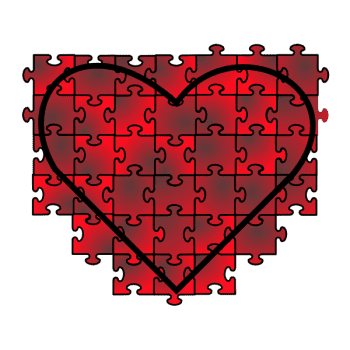 The early stages of any new relationship are always the most intense. This is the time when the exhilaration of meeting the right person is the most pronounced, and we feel immediately close and may even become focused on thinking about them frequently or on an ongoing basis.
The early stages of any new relationship are always the most intense. This is the time when the exhilaration of meeting the right person is the most pronounced, and we feel immediately close and may even become focused on thinking about them frequently or on an ongoing basis.
This is typically a period of time when all of our emotional energy is on the relationship. Hormonal changes in the body, including higher levels of adrenaline, create a high level of emotional awareness. The levels of serotonin, which naturally calm and relax a person, are low, leading to a heightened sense of every interaction with the person who is the object of your focus.
When these hormonal changes occur, we experience a state of constant emotional and physical alertness. The sense of euphoria also creates an emotional state of wanting to get closer to the person and to make them want you. This often results in dropping personal boundaries and even taking risks that are not something you would do if you were not attracted to an individual.
Why We Ignore the Red Flags
Suppose the person we are with in the early stages of a romantic relationship is a narcissist or love avoidant. In that case, these changes in our natural behavior can cause us to miss the red flags of the problems in the relationship. To further complicate matters, the physical and sexual attraction at the start of the relationship can override natural caution. It can also cause people to rush into relationships even if they notice the red flags of a potential problem.
In addition to the physiological issues that are occurring, there are several other reasons that people ignore the red flags of a love avoidant or narcissistic partner:
· Love bombing – the narcissist capitalizes on the initial euphoria of the relationship by piling on attention and affection, often with over-the-top displays of love that are designed to overwhelm the partner. This is excessive and may include actual gifts, or it may just be promises of things to come.
· Personal trauma – individuals who have experienced early trauma, particularly in their childhood, often feel familiar with the experience of being with a love avoidant or distant partner. This creates a sense of comfort or ease in the relationship that would be a red flag to another person without a similar background.
· Low self-esteem -individuals with low self-esteem often find the attention and the ability of the narcissist to mold themselves into the “perfect partner.” This is a façade designed to make themselves more appealing and desirable, masking the controlling or avoidant behavior that is their true nature.
· Too fast to process – narcissists have experience in seeing past relationships deteriorate due to their behavior. They often move very quickly in the initial stages, asking partners to move in or even marry in just weeks or months of getting to know each other. This is a static maneuver to push the partner into a relationship before the issues begin to surface.
· Second guessing our gut feelings – it is not uncommon for people to second guess their initial response to bad behavior by their partner. This could include making excuses or convincing ourselves of their good intentions rather than acknowledging the negative behavior that occurred.
· Overcommunication – one of the red flags that is often misunderstood is the constant need of the narcissist or love avoidant to know where the other partner is, even if they are vague or even absent. Multiple texts, phone calls, and social media messages are often a part of love bombing as well as a method of control and pressure.
Look for multiple signs or signs that progressively become more evident in your relationship as key indicators you may be dating a love avoidant or narcissist.
Recognizing Red Flags
If you are concerned about the issues you see in the relationship and think they may be indicators of a love avoidant or narcissistic partner, one of the most effective steps is to simply slow the relationship down. If this request causes anger, defensiveness, or demands to stay on the fast pace, it is possible the individual is a narcissist or love avoidant.
Listen to friends or loved ones if they are expressing concerns about the new partner. They may indicate you have changed, are more isolated, or they may indicate you seem to be giving in to everything he wants to do. Talking to a therapist or joining a community such as the Wake Up Recovery Inner Circle can be helpful in determining if the relationship is healthy and in setting boundaries to keep you safe. There is nothing more powerful then gaining support from others going through a similar journey as you.
References Reviewed
https://www.verywellmind.com/what-is-love-bombing-5223611
https://www.psychologytoday.com/us/blog/get-hardy/201203/the-early-stages-falling-in-love
https://www.psychologytoday.com/us/blog/toxic-relationships/201810/red-flags-and-blind-spots-in-dating-narcissist
https://psychcentral.com/lib/5-red-flags-and-blind-spots-in-dating-a-narcissist#5
Sherry Gaba, LCSW and Transformation Coach
Author of Love Smacked: How to Stop the Cycle of Relationship Addiction and Codependency to find Everlasting Love
Up Recovery for Toxic Relationships, Codependency and Love Addiction


